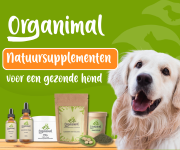Passive immunity
When one animal receives another animal's disease-fighting antibodies and/or white blood cells, rather than developing their own, we refer to this as 'passive immunity.' Examples of passive immunity include the antibodies received by a fetus through the placenta, antibodies the newborn receives from her mother through the very first nursing, antivenins to treat snakebite, and bone marrow transplants which help replace an animal's white blood cells.
All antibodies received from the puppy's mother are called maternal antibodies. It must be noted that the puppy will only receive antibodies against diseases for which its mother had been recently vaccinated against or exposed to. As an example, a bitch that had NOT been vaccinated against or exposed to parvovirus, would not have any antibodies against parvovirus to pass along to her puppies. The puppies then would be susceptible to developing a parvovirus infection.
Passive immunity in utero (through the placenta): In some species, protective antibodies pass through the placenta (the organ by which a fetus is connected to her mother) and into the fetus while the unborn animal is still in the uterus. A young animal, therefore, carries this protection with her when she is born. She has immunity to protect herself against disease conditions that she may encounter before her own immune system is operating. Humans get most of the immunity they receive from their mothers in this manner.
Passive immunity through colostrum: Dogs and cats, like many other mammals, pass the majority of the maternal antibodies to the newborn via colostrum. Defined as the first 24 hours of milk flow following birth, colostrum is a highly concentrated mixture of large protein antibody molecules, water, vitamins, electrolytes, and nutrients.
Puppies are only able to absorb the antibodies from colostrum during the first 18 (or less) hours of life.
Newborn puppies, through some process that we do not fully understand, are able to absorb the large maternal antibodies into their blood system through their intestinal wall unchanged. The absorption of these large protein molecules is one of the peculiarities of newborns. As the puppy ages, his digestive system begins to hydrolyze protein molecules. This is a process in which a molecule of water is added to proteins, breaking them into smaller sections. This is important because if the maternal antibodies are hydrolyzed, they lose their ability to destroy disease causing viruses and bacteria. Usually, toward the end of the puppy's first 18 hours of life (may be as few as 12 hours) he loses the ability to absorb these antibodies and they are hydrolyzed. Therefore, even if the mother continued to produce colostral antibodies, they would be destroyed and not provide any protection to the puppy.
It is important that we now clarify one often-misunderstood point. As stated, colostrum with its antibody protection is only present in the first 24 hours of milk flow and newborns can only gain colostral immunity if they nurse during that time frame, and they are less than one day old. After that, it makes no difference how much or how little they nurse; they will not absorb any more antibodies.
Many breeders and pet owners believe that as long as the puppy is nursing, she is gaining more antibody- protection. That is unfortunately untrue. Others feel that by allowing older puppies to nurse on a new mother, immediately after she gives birth,it will give the young animals another dose of maternal antibodies. This is also untrue. Remember, newborns lose the ability to absorb antibodies at approximately 18 hours post-partum.
Level and length of protection from colostrum
The amount of antibodies that are present within the colostrum are directly proportional to the levels of antibodies present in the mother. We often speak of 'titers' as a way to quantify the levels of antibodies present in an animal's blood stream. Tests are run on blood from the animal in question and, in simple terms, the higher the titers, the more antibodies are present. Mothers with high titers pass higher concentrations of antibodies through their milk. Newborns that have taken milk with larger quantities of antibodies are able to absorb more antibodies, and therefore, have higher concentrations in their blood. Since protein molecules break down slowly and at different rates, newborns that start out with higher levels of these colostral antibodies carry this protection for longer periods of time. This explains why we want to be sure the bitch has a high antibody titer before breeding, since she will be able to pass more protection to her young. The young will then possess higher levels of protection for longer periods of time against the diseases that the mother has immunity against such as canine distemper, canine parvovirus, and canine coronavirus.
Window of susceptibility
The age at which young animals can effectively be immunized is proportional to the amount of antibody protection they received from their mother. In the first weeks of a puppy's life, high levels of maternal antibodies present in the puppy's bloodstream block the effectiveness of most vaccines. With time, the amount of maternal antibodies in the puppy drops to a low enough level in the puppy that immunity (protection from disease) can be produced through vaccination. This usually occurs between five and twelve weeks of age. There is a period of time from several days to several weeks in which the maternal antibodies are too low to provide protection against disease, but too high to allow a vaccine to work. This period is called the 'window of susceptibility'. This is a time period when, despite being vaccinated, a young animal can still contract a disease.
Below is a graph illustrating the "window of susceptibility": The vertical axis of this graph represents the level of antibodies in the puppy. The horizontal axis represents the age starting from birth. For the purpose of this graph we will assume that the puppy nursed and that the mother produced quality colostrum.
Window of Susceptibility

The length and timing of the window of susceptibility is different in every litter, and even between individuals in a litter. A study of a cross section of different puppies showed that the age at which they were able to respond to a vaccine and develop protection (become immunized) covered a wide period of time. At six weeks of age, 25% of the puppies could be immunized. At 9 weeks, 40% of the puppies were able to respond to the vaccine and were protected. The number increased to 60% by 16 weeks, and by 18 weeks, 95% of the puppies could be immunized.
As you can see, it is very difficult for us to determine, when, in the presence of passive immunity, an individual puppy should be vaccinated. There are just too many variables. Even if we did blood tests on them, each animal in the litter would probably have a different antibody titer. Some will have absorbed more antibodies, the antibodies may have broken down more quickly in others, or some may have used a portion of their antibodies if they encountered harmful bacteria or viruses. Additionally, a young animal may have a protective titer (level of antibodies) for one disease but not enough for another. This is why puppies must be given a series of vaccinations when they are young.
Progress is being made. Some of the newer vaccines can stimulate active immunity in the young animal even when maternal antibodies are present. As vaccines improve, we will hopefully be better able to protect puppies throughout their early life.
Conclusion
It is extremely important that puppies receive an adequate amount of quality colostrum during the first 24 hours of their lives. It provides protection from disease through passive transfer of maternal antibodies. This immunity will help protect the puppy until his immune system is mature enough to produce his own antibodies. Making sure a newborn receives colostrum will give it a great start on the way to a happy and healthy life.





